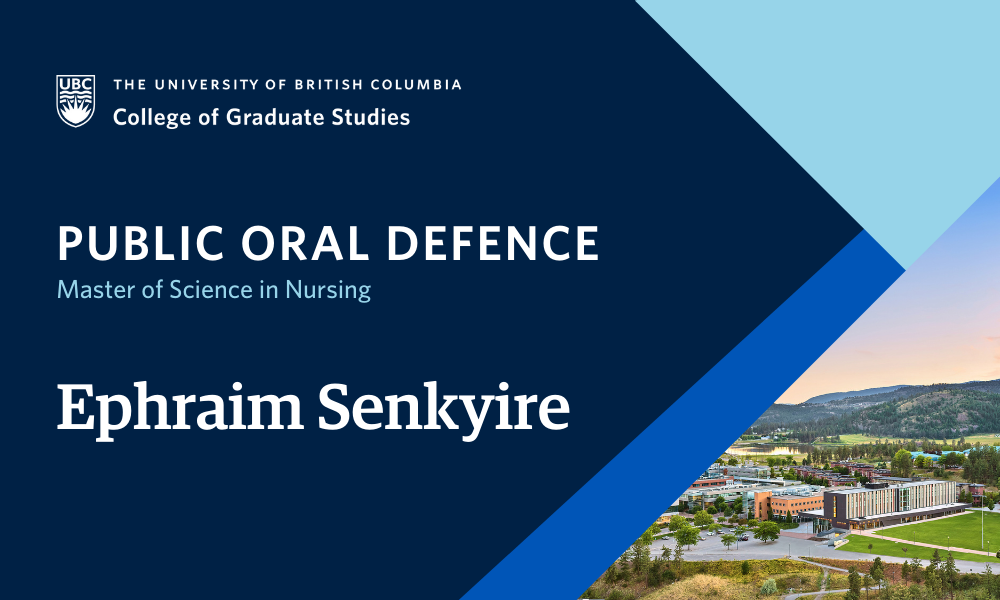
Thesis Defence: “Vaccine Safety and Trust is My Concern”: A Qualitative Exploration of Lactating People’s Perspectives on COVID-19 Vaccination in British Columbia
April 14 at 1:00 pm - 5:00 pm

Ephraim Senkyire, supervised by Dr. Marie Tarrant, will defend their thesis titled “’Vaccine Safety and Trust is My Concern’: A Qualitative Exploration of Lactating People’s Perspectives on COVID-19 Vaccination in British Columbia” in partial fulfillment of the requirements for the degree of Master of Science in Nursing.
An abstract for Ephraim Senkyire’s thesis is included below.
Defences are open to all members of the campus community as well as the general public. Registration is not required for in-person defences.
Abstract
Lactating people experiencing SARS-CoV-2 infection encounter greater physical, emotional, and psychosocial challenges during the postpartum period compared to the general population. Despite the importance of COVID-19 vaccination globally, campaigns aimed at vaccinating at-risk populations, including lactating people, have faced challenges, leading to a low vaccine uptake. This study aims to describe lactating people’s perceptions toward COVID-19 vaccination uptake and explore facilitators and barriers that inform their COVID-19 vaccination decision-making process. This study adopted an exploratory descriptive qualitative approach, analysing 15 transcripts from interviews with 27 breastfeeding women. The data included eight one-on-one interviews and seven focus group discussions with 19 participants, all recruited online in 2021. The interview guide was developed based on the Health Belief Model, providing a structured framework for exploring participants’ perspectives. Four key themes emerged: uncertainty and reservations, information-seeking behaviour, facilitators, and barriers. Uncertainty and reservations were primarily driven by the lack of vaccine safety data specific to breastfeeding, leading some participants to delay or avoid vaccination. While actively seeking credible information, participants encountered several barriers, including conflicting information on social media, limited breastfeeding-specific guidance, and ongoing safety concerns. Despite these challenges, facilitators, such as those with access to trusted information sources, particularly healthcare professionals and public health agencies, helped reassure participants. Those who received clear, evidence-based information felt more confident about the vaccine’s safety during breastfeeding. Concerns about safety, efficacy, limited data, and widespread misinformation continue to hinder vaccine acceptance. However, addressing these barriers through trusted healthcare providers, strengthening public trust in science, and promoting responsible use of social media by government officials and agencies can enhance vaccine confidence and uptake among lactating people.